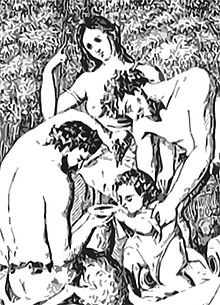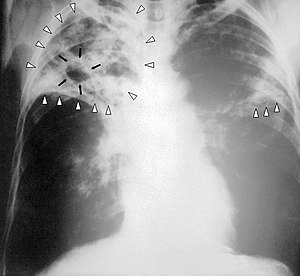Hyperbole
candid camera
Candid Camera is an American hidden camera/practical joke reality television series created and produced by Allen Funt, which initially began on radio as The Candid Microphone June 28, 1947. After a series of theatrical film shorts, also titled Candid Microphone, Funt's concept came to television on August 10, 1948, and continued into the 1970s. Aside from occasional specials in the 1980s and 1990s, the show was off air until making a comeback on CBS in 1996, before moving to PAX in 2001. This incarnation of the weekly series ended on May 5, 2004, concurrent with the selling of the PAX network itself. Beginning on August 11, 2014, the show returned in a new series with hour-long episodes on TV Land.
Moon River
Adventures of Huckleberry finn
The Pink Panther
The Pink Panther is a series of comedy-mystery films featuring an inept French police detective, Inspector Jacques Clouseau. The series began with the release of The Pink Panther (1963). The role of Clouseau was originated by, and is most closely associated with, Peter Sellers. Most of the films were directed and co-written by Blake Edwards, with theme music composed by Henry Mancini. Elements and characters inspired by the films were adapted into other media, including books, comic books and animated series.
Henry Mancini
panacea
In Greek mythology, Panacea (Greek Πανάκεια, Panakeia) was a goddess of universal remedy. She was the daughter of Asclepius and Epione. Panacea and her four sisters each performed a facet of Apollo's art: Panacea (the goddess of universal health), Hygieia ("Hygiene" the goddess/personification of health, cleanliness, and sanitation), Iaso (the goddess of recuperation from illness), Aceso (the goddess of the healing process), and Aglæa/Ægle (the goddess of beauty, splendor, glory, magnificence, and adornment).
pandemic
A pandemic (from Greek πᾶν pan "all" and δῆμος demos "people") is an epidemic of infectious disease that has spread through human populations across a large region; for instance multiple continents, or even worldwide. A widespread endemic disease that is stable in terms of how many people are getting sick from it is not a pandemic. Further, flu pandemics generally exclude recurrences of seasonal flu. Throughout history, there have been a number of pandemics, such as smallpox and tuberculosis. One of the most devastating pandemics was the Black Death, killing over 75 million people in 1350. The most recent pandemics include the HIV pandemic as well as the 1918 and 2009 H1N1 pandemics.
Tuberculosis
Tuberculosis (TB) is an infectious disease caused by the bacterium Mycobacterium tuberculosis (MTB). Tuberculosis generally affects the lungs, but can also affect other parts of the body. Most infections do not have symptoms; in which case it is known as latent tuberculosis. About 10% of latent infections progress to active disease which, if left untreated, kills about half of those infected. The classic symptoms of active TB are a chronic cough with blood-containing sputum, fever, night sweats, and weight loss. The historical term "consumption" came about due to the weight loss. Infection of other organs can cause a wide range of symptoms.
chickenpox
Chickenpox, also known as varicella, is a highly contagious disease caused by the initial infection with varicella zoster virus (VZV).The disease results in a characteristic skin rash that forms small, itchy blisters, which eventually scab over. It usually starts on the chest, back, and face then spreads to the rest of the body. Other symptoms may include fever, feeling tired, and headaches. Symptoms usually last five to ten days. Complications may occasionally include pneumonia, inflammation of the brain, or bacterial infections of the skin among others. The disease is often more severe in adults than children. Symptoms begin ten to twenty-one days after exposure to the virus.
Enterovirus
Enteroviruses are a genus of positive-sense single-stranded RNA viruses associated with several human and mammalian diseases.
Enteroviruses are named by their transmission-route through the intestine (enteric meaning intestinal).
Sean Connery
Job
Job is presented as a good and prosperous family man who is beset with horrendous disasters that take away all that he holds dear, including his offspring, his health, and his property. He struggles to understand his situation and begins a search for the answers to his difficulties.
Psalm 23
Psalm 23 (Greek numbering: Psalm 22) is the 23rd psalm in the Old Testament Book of Psalms. The writer describes God as his shepherd. The text is often alluded to in popular media and has been set to music many times.

week28
propinquity
propinquity (n.)
late 14c., "nearness in relation, kinship," later also "physical nearness" (early 15c.), from Old French propinquite (13c.) and directly from Latin propinquitatem (nominative propinquitas) "nearness, vicinity; relationship, affinity," from propinquus "near, neighboring," from prope "near" (enlarged from PIE *pro "before;" see pro-) + suffix -inquus.
Nothing propinks like propinquity [Ian Fleming, chapter heading, "Diamonds are Forever," 1956; phrase popularized 1960s by U.S. diplomat George Ball]
vulnerable
vulnerable (adj.)
c. 1600, from Late Latin vulnerabilis "wounding," from Latin vulnerare "to wound, hurt, injure, maim," from vulnus (genitive vulneris) "wound," perhaps related to vellere "pluck, to tear" (see svelte), or from PIE *wele-nes-, from *wele- (2) "to strike, wound" (see Valhalla).
cacophony
cacophony (n.)
1650s, from Greek kakophonia, from kakophonos "harsh sounding," from kakos "bad, evil" (see caco-) + phone "voice, sound," from PIE root *bha- (2) "to speak, tell, say" (see fame (n.)). Related: Cacophonous.
exploit
exploit (v.)
c. 1400, espleiten, esploiten "to accomplish, achieve, fulfill," from Old French esploitier, espleiter "carry out, perform, accomplish," from esploit (see exploit (n.)). The sense of "use selfishly" first recorded 1838, from a sense development in French perhaps from use of the word with reference to mines, etc. (compare exploitation). Related: Exploited; exploiting.
exploit (n.)
late 14c., "outcome of an action," from Old French esploit "a carrying out; achievement, result; gain, advantage" (12c., Modern French exploit), a very common word, used in senses of "action, deed, profit, achievement," from Latin explicitum "a thing settled, ended, or displayed," noun use of neuter of explicitus, past participle of explicare "unfold, unroll, disentangle" (see explicit).
Meaning "feat, achievement" is c. 1400. Sense evolution is from "unfolding" to "bringing out" to "having advantage" to "achievement." Related: Exploits.
bedlam
bedlam (n.)
"scene of mad confusion," 1660s, from colloquial pronunciation of "Hospital of Saint Mary of Bethlehem" in London, founded 1247 as a priory, mentioned as a hospital 1330 and as a lunatic hospital 1402; converted to a state lunatic asylum on dissolution of the monasteries in 1547. It was spelled Bedlem in a will from 1418, and Betleem is recorded as a spelling of Bethlehem in Judea from 971.
disgruntled
disgruntled (adj.)
past participle adjective from disgruntle.
panacea
panacea (n.)
"universal remedy," 1540s, from Latin panacea, a herb (variously identified) that would heal all illnesses, from Greek panakeia "cure-all," from panakes "all-healing," from pan- "all" (see pan-) + akos "cure," from iasthai "to heal" (see -iatric). Earlier in English as panace (1510s).
eradicate
eradicate (v.)
early 15c., "destroy utterly," literally "pull up by the roots," from Latin eradicatus, past participle of eradicare "to root out, annihilate" (see eradication). Related: Eradicated; eradicating; eradicable.
infallible
infallible (adj.)
"exempt from error in judgment, knowledge, or opinion," early 15c., from Medieval Latin infallibilis, from in- "not, opposite of" (see in- (1)) + Late Latin fallibilis (see fallible). In reference to Popes, attested from 1870, hence infallibilism, the doctrine of this; infallibilist. Related: Infallibly.
impede
impede (v.)
c. 1600, back-formation from impediment, or else from Latin impedire "impede, be in the way, hinder, detain," literally "to shackle the feet." Related: Impeded; impedes; impeding; impedient.
sedate
sedate (adj.)
"calm, quiet," 1660s, from Latin sedatus "composed, moderate, quiet, tranquil," past participle of sedare "to settle, calm," causative of sedere "to sit" (see sedentary). Related: Sedately.
sedate (v.)
"treat with sedatives," 1945, a back-formation from the noun derivative of sedative (adj.). The word also existed 17c. in a sense "make calm or quiet." Related: Sedated; sedating.
serenity
serenity (n.)
1530s, of weather, 1590s, of persons, from Middle French sérénité, from Latin serenitatem (nominative serenitas) "clearness, serenity," from serenus (see serene). Earliest use (mid-15c.) was as a title of honor for kings, probably from the similar use of Latin serenitas, applied to Roman emperors, later popes.
equanimity
equanimity (n.)
c. 1600, "fairness, impartiality," from French équanimité, from Latin aequanimitatem (nominative aequanimitas) "evenness of mind, calmness; good-will, kindness," from aequanimis "mild, kind," literally "even-minded," from aequus "even, level" (see equal (adj.)) + animus "mind, spirit" (see animus). Meaning "evenness of temper" in English is from 1610s.
compatible
compatible (adj.)
mid-15c., from Middle French compatible (15c.), from Medieval Latin compatibilis, from Late Latin compati (see compassion). Related: Compatibility.
revere
revere (v.)
1660s, from French révérer, from Latin revereri "revere, fear" (see reverence (n.), which also was the earlier form of the verb). Related: Revered; revering.
avarice
avarice (n.)
c. 1300, from Old French avarice "greed, covetousness" (12c.), from Latin avaritia "greed," from avarus "greedy," adjectival form of avere "crave, long for."
insatiable
insatiable (adj.)
early 15c., insaciable, from Old French insaciable "ravenous" (15c., Modern French insatiable), or directly from Latin insatiabilis "not to be satisfied," from in- "not, opposite of" (see in- (1)) + satiabilis, from satiare (see satiate). Related: Insatiably; insatiableness.
nadir
nadir (n.)
late 14c., in astronomical sense, from Medieval Latin nadir, from Arabic nazir "opposite to," in nazir as-samt, literally "opposite direction," from nazir "opposite" + as-samt "road, path" (see zenith). Transferred sense of "lowest point (of anything)" is first recorded 1793.
irrational
irrational (adj.)
late 15c., "not endowed with reason" (of beasts, etc.), from Latin irrationalis/inrationalis "without reason, not rational," from assimilated form of in- "not, opposite of" (see in- (1)) + rationalis "of or belonging to reason, reasonable" (see rational (adj.)).
Meaning "illogical, absurd" is attested from 1640s. Related: Irrationally. The mathematical sense "inexpressible in ordinary numbers" is from late 14c. in English, from use of the Latin word as a translation of Greek alogon in Euclid.
moribund
moribund (adj.)
1721, "about to die," from Middle French moribund (16c.), from Latin moribundus "dying, at the point of death," from mori "to die" (see mortal (adj.)). Figurative sense of "near an end" is from 1837. Related: Moribundity.
week29
adherent
adherent (adj.)
late 14c., "sticking, clinging to, adhesive," from Old French adherent or directly from Latin adhaerentem (nominative adhaerens), present participle of adhaerere "stick to," from ad- "to" (see ad-) + haerere "to stick" (past participle haesus; see hesitation).
adherent (n.)
early 15c., "follower, supporter, one who upholds (a leader, cause, etc.)," from Old French adherent or directly from Latin adhaerentem (nominative adhaerens), present participle of adhaerere "stick to," from ad "to" (see ad-) + haerere "to stick" (see hesitation). Meaning "adhesive substance" is from 1912.
lithe
lithe (adj.)
Old English liðe "soft, mild, gentle, calm, meek," also, of persons, "gracious, kind, agreeable," from Proto-Germanic *linthja- (source also of Old Saxon lithi "soft, mild, gentle," Old High German lindi, German lind, Old Norse linr "soft to the touch, gentle, mild, agreeable," with characteristic loss of "n" before "th" in English), from PIE root *lento- "flexible" (source also of Latin lentus "flexible, pliant, slow," Sanskrit lithi).
In Middle English, used of the weather. Current sense of "easily flexible" is from c. 1300. Related: Litheness. Old and Middle English had the related verb lin "to cease doing (something)," also used of the wind dying down.
pathetic
pathetic (adj.)
1590s, "affecting the emotions, exciting the passions," from Middle French pathétique "moving, stirring, affecting" (16c.), from Late Latin patheticus, from Greek pathetikos "subject to feeling, sensitive, capable of emotion," from pathetos "liable to suffer," verbal adjective of pathein "to suffer" (see pathos). Meaning "arousing pity, pitiful" is first recorded 1737. Colloquial sense of "so miserable as to be ridiculous" is attested from 1937. Related: Pathetical (1570s); pathetically. Pathetic fallacy (1856, first used by Ruskin) is the attribution of human qualities to inanimate objects.
obese
obese (adj.)
1650s, back-formation from obesity and in part from Latin obesus "fat, stout, plump," past participle of obedere "that has eaten itself fat" (see obesity). According to OED, "Rare before 19th c." Related: Obeseness. Latin obesus was translated in Old English as oferfæt "overfat."
bliss
bliss (v.)
often with out, by 1973, U.S. colloquial, from bliss (n.).
bliss (n.)
Old English blis, also bliðs "bliss, merriment, happiness, grace, favor," from Proto-Germanic *blithsjo (source also of Old Saxon blidsea, blizza), from *blithiz "gentle, kind" + *-tjo noun suffix. Originally mostly of earthly happiness; influenced by association with bless and blithe.
apathy
apathy (n.)
c. 1600, "freedom from suffering," from French apathie (16c.), from Latin apathia, from Greek apatheia "freedom from suffering, impassability, want of sensation," from apathes "without feeling, without suffering or having suffered," from a- "without" (see a- (3)) + pathos "emotion, feeling, suffering" (see pathos). Originally a positive quality; sense of "indolence of mind, indifference to what should excite" is from c. 1733.
exhort
exhort (v.)
c. 1400, "to exhort, encourage," from Old French exhorer (13c.) and directly from Latin exhortari "to exhort, encourage, stimulate" (see exhortation). Related: Exhorted; exhorting.
inebriated
inebriated (adj.)
"drunken," c. 1600, past participle adjective from inebriate. The earlier adjective was inebriate (late 15c.).
fracas
fracas (n.)
1727, from French fracas "crash, sudden noise; tumult, bustle, fuss" (15c.), from Italian fracasso "uproar, crash," back-formation from fracassare "to smash, crash, break in pieces," from fra-, a shortening of Latin infra "below" (see infra-) + Italian cassare "to break," from Latin quassare "to shake" (see quash).
adversary
adversary (n.)
"unfriendly opponent, enemy" (originally especially of Satan as the enemy of mankind), mid-14c., aduersere, from Anglo-French adverser (13c.), Old French adversarie (12c., Modern French adversaire) "hostile opponent, enemy," or directly from Latin adversarius "an opponent, rival, enemy," noun use of adjective meaning "opposite, hostile, contrary," literally "turned toward one," from adversus "turned against, turned toward, fronting, facing," figuratively "hostile, adverse, unfavorable," past participle of advertere "to turn toward," from ad "to" (see ad-) + vertere "to turn, turn back, be turned; convert, transform, translate; be changed" (see versus). The Latin word is glossed in Old English by wiðerbroca.
gusto
gusto (n.)
1620s, "very common from the beginning of the 19th c." [OED], from Italian gusto "taste," from Latin gustus "a tasting," related to gustare "to taste, take a little of," from PIE *gus-tu-, suffixed form of root *geus- "to taste, choose" (source also of Sanskrit jus- "enjoy, be pleased," Avestan zaosa- "pleasure," Old Persian dauš- "enjoy"). The root forms words for "taste" in Greek and Latin, but its descendants in Germanic and Celtic mostly mean "try" or "choose" (such as Old English cosan, cesan, Modern English choose; Gothic kausjan "to test, to taste of," Old High German koston "try," German kosten "taste of"). The semantic development could have been in either direction. English first borrowed the French form, guste "organ of taste; sense of taste" (mid-15c.), but this became obsolete.
banal
banal (adj.)
"trite, commonplace," 1840, from French banal, "belonging to a manor, common, hackneyed, commonplace," from Old French banel "communal" (13c.), from ban "decree; legal control; announcement; authorization; payment for use of a communal oven, mill, etc." (see ban (v.)). The modern sense evolved from the word's use in designating things like ovens or mills that belonged to feudal serfs, or else compulsory military service; in either case it was generalized in French through "open to everyone" to "commonplace, ordinary," to "trite, petty."
platitude
platitude (n.)
1812, "dullness," from French platitude "flatness, vapidness" (late 17c.), from Old French plat "flat" (see plateau (n.)); formed on analogy of latitude, etc. Meaning "a flat, dull, or commonplace remark" is recorded from 1815. Related: Platitudinous. Hence platitudinarian (n.), 1855; platitudinize (1867).
indolent
indolent (adj.)
1660s, "causing no pain, painless," from French indolent (16c.) or directly from Late Latin indolentem (see indolence). Sense of "living easily, slothful," is 1710, a sense perhaps developed in French. Related: Indolently.
garrulous
garrulous (adj.)
1610s, from Latin garrulus "talkative, chattering," from garrire "to chatter," from PIE root *gar- "to call, cry," of imitative origin (compare Greek gerys "voice, sound," Ossetic zar "song," Welsh garm, Old Irish gairm "noise, cry"). Related: Garrulously; garrulousness.
dilettante
dilettante (n.)
1733, borrowing of Italian dilettante "lover of music or painting," from dilettare "to delight," from Latin delectare (see delight (n.)). Originally without negative connotation, "devoted amateur," the pejorative sense emerged late 18c. by contrast with professional.
atypical
atypical (adj.)
1847, from a- (2) "not" + typical. Related: Atypically.
nondescript
nondescript (adj.)
1680s, "not hitherto described," in scientific usage, coined from non- + Latin descriptus, past participle of describere (see describe). General sense of "not easily described or classified" is from 1806.
wane
wane (v.)
Old English wanian "make or become smaller gradually, diminish, decline, fade," from Proto-Germanic *wanen (source also of Old Saxon wanon, Old Norse vana, Old Frisian wania, Middle Dutch waenen, Old High German wanon "to wane, to grow less"), from *wano- "lacking," from PIE *we-no-, from root *eue- "to leave, abandon, give out" (see vain). Related: Waned; waning; wanes.
pique
pique (n.)
1530s, "fit of ill feeling," from Middle French pique "a prick, sting, irritation," noun of action from piquer (see pike (n.2)).
pique (v.)
"to excite to anger," 1670s, from French piquer "to prick, sting" (see pike (n.2)). Softened meaning "to stimulate, excite" is from 1690s. Related: Piqued; piquing.
week30
gaudy
gaudy (adj.)
"showy, tastelessly rich," c. 1600; earlier "joyfully festive" (1580s), probably a re-adjectivizing of gaudy (n.) "large, ornamental bead in a rosary" (early 14c.) via the noun gaud + -y (2.). In early Modern English it also could mean "full of trickery" (1520s).
Or possibly the adjective is from or influenced by Middle English noun gaudegrene (early 14c.), name of a yellowish-green color or pigment, originally of dye obtained from the weld plant (see weld (n.1)). This Germanic plant-name became gaude in Old French, and thus the Middle English word. Under this theory, the sense shifted from "weld-dye" to "bright ornamentation."
As a noun, "feast, festival" 1650s, from gaudy day "day of rejoicing" (1560s).
encumbrance
encumbrance (n.)
c. 1300, "trouble, difficulty; ensnarement, temptation," from Old French encombrance "encumbrance, obstruction; calamity, trouble," from encombrer (see encumber). Meaning "that which encumbers, impediment, obstacle" is from late 14c. in English.
extinct
extinct (adj.)
early 15c., "extinguished, quenched," from Latin extinctus/exstinctus, past participle of extinguere/exstinguere "to put out, quench; go out, die out; kill, destroy" (see extinguish). Originally of fires; in reference to the condition of a family or a hereditary title that has "died out," from 1580s; of species by 1690s. Shakespeare uses it as a verb. Compare extinction.
idyllic
idyllic (adj.)
"full of natural, simple charm," 1831, literally "suitable for an idyll" from French idyllique or else from idyll + -ic. In late 18c. it meant "pertaining to an idyll."
galvanize
galvanize (v.)
1801, "stimulate by galvanic electricity," from French galvaniser, from galvanisme (see galvanism). Figurative sense of "excite, stimulate (as if by electricity)" first recorded 1853 (galvanic was in figurative use in 1807). Meaning "to coat with metal by means of galvanic electricity" (especially to plate iron with tin, but now typically to plate it with zinc) is from 1839.
He'll swear that in her dancing she cuts all others out,
Though like a Gal that's galvanized, she throws her legs about.
[Thomas Hood, "Love has not Eyes," 1845]
Related: Galvanized; galvanizing.
condescend
condescend (adj.)
mid-14c., "to yield deferentially," from Old French condescendere (14c.) "to agree, consent, give in, yield," from Late Latin condescendere "to let oneself down," from Latin com "with, together" (see com-) + descendere "descend" (see descend). Sense of "to sink willingly to equal terms with inferiors" is from mid-15c.
malign
condescend (adj.)
mid-14c., "to yield deferentially," from Old French condescendere (14c.) "to agree, consent, give in, yield," from Late Latin condescendere "to let oneself down," from Latin com "with, together" (see com-) + descendere "descend" (see descend). Sense of "to sink willingly to equal terms with inferiors" is from mid-15c.
jocose
jocose (adj.)
"given to jokes and jesting," 1670s, from Latin iocosus "full of jesting, fond of jokes, funny," from iocus "pastime, sport; a jest, joke" (see joke (n.)). Often it implies ponderous humor (compare jocund). Related: Jocosely; jocoseness.
candor
candor (n.)
"openness of mind, impartiality, frankness," c. 1600, from Latin candor "purity, openness," originally "whiteness," from candere "to shine, to be white" (see candle). Borrowed earlier in English (c. 1500) with the Latin literal sense "extreme whiteness."
mortify
mortify (v.)
late 14c., "to kill," from Old French mortefiier "destroy, overwhelm, punish," from Late Latin mortificare "cause death, kill, put to death," literally "make dead," from mortificus "producing death," from Latin mors (genitive mortis) "death" (see mortal (adj.)) + root of facere "to make" (see factitious). Religious sense of "to subdue the flesh by abstinence and discipline" first attested early 15c. Sense of "humiliate" first recorded 1690s (compare mortification). Related: Mortified; mortifying.
zenith
zenith (n.)
"point of the heavens directly overhead at any place," late 14c., from Old French cenith (Modern French zénith), from Medieval Latin cenit, senit, bungled scribal transliterations of Arabic samt "road, path," abbreviation of samt ar-ras, literally "the way over the head." Letter -m- misread as -ni-.
The Medieval Latin word could as well be influenced by the rough agreement of the Arabic term with classical Latin semita "sidetrack, side path" (notion of "thing going off to the side"), from se- "apart" + *mi-ta-, suffixed zero-grade form of PIE root *mei- (1) "to change" (see mutable). Figurative sense of "highest point or state" is from c. 1600.
omnipotent
omnipotent (adj.)
early 14c., from Old French omnipotent "almighty, all-powerful" (11c.) or directly from Latin omnipotentem (nominative omnipotens) "all-powerful, almighty," from omnis "all" (see omni-) + potens (genitive potentis) "powerful" (see potent). Strictly only of God or a deity; general sense of "having absolute power or authority" is attested from 1590s.
precedent
precedent (n.)
early 15c., "case which may be taken as a rule in similar cases," from Middle French precedent, noun use of an adjective, from Latin praecedentum (nominative praecedens), present participle of praecedere "go before" (see precede). Meaning "thing or person that goes before another" is attested from mid-15c. As an adjective in English from c. 1400. As a verb meaning "to furnish with a precedent" from 1610s, now only in past participle precedented.
fledgling
fledgling
also fledgeling, 1830, "untried" (adj.), in Tennyson; 1846 as a noun meaning "young bird" (one newly fledged); from fledge + diminutive suffix -ling. Of persons, from 1856.
peremptory
peremptory (adj.)
"decisive," mid-15c., legal term, from Anglo-French peremptorie, from Middle French peremtoire, from Latin peremptorius "destructive, decisive, final," from peremptor "destroyer," from perimpere "destroy, cut off," from per "away entirely, to destruction" (see per) + emere "to take" (see exempt (adj.)). Of persons or their words, "certain, assured, brooking no debate," 1580s. Related: Peremptorily.
wheedle
wheedle (v.)
"to influence by flattery," 1660s, of uncertain origin, perhaps connected with Old English wædlian "to beg," from wædl "poverty" [OED], or borrowed by English soldiers in the Thirty Years' War from German wedeln "wag the tail," hence "fawn, flatter" (compare adulation). Related: Wheedled; wheedling.
charlatan
charlatan (n.)
1610s, from French charlatan "mountebank, babbler" (16c.), from Italian ciarlatano "a quack," from ciarlare "to prate, babble," from ciarla "chat, prattle," perhaps imitative of ducks' quacking. Related: Charlatanism; charlatanical; charlatanry.
rustic
rustic (adj.)
mid-15c., from Latin rusticus "of the country, rural; country-like, plain, simple, rough, coarse, awkward," from rus (genitive ruris) "open land, country" (see rural). Noun meaning "a country person, peasant" is from 1550s (also in classical Latin). Related: Rustical (early 15c.).
decorum
decorum (n.)
1560s, from Latin decorum "that which is seemly," noun use of neuter of adjective decorus "fit, proper," from decor (see decor).
jubilant
jubilant (adj.)
1660s (Milton), from Latin iubilantem (nominative iubilans), present participle of iubilare "to let out whoops," in Christian writers, "to shout for joy," related to iubilum "wild shout," from Proto-Italic *iu, an exclamation of joy that probably was in Proto-Indo-European (cognates: Greek iu, an interjection of amazement, iuge "crying;" Middle High German ju, juch, an exclamation of joy; Dutch juichen, Old Norse yla, English yowl). With ending as in sibilant. Related: Jubilantly.












沒有留言:
張貼留言